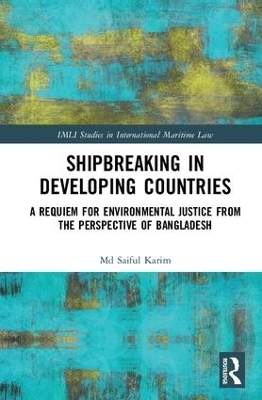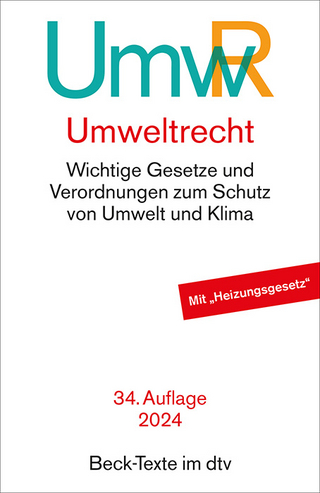
Shipbreaking in Developing Countries
A Requiem for Environmental Justice from the Perspective of Bangladesh
Seiten
2017
Routledge (Verlag)
978-1-138-81820-0 (ISBN)
Routledge (Verlag)
978-1-138-81820-0 (ISBN)
Sitting at the intersection of three distinct fields—environmental justice, international environmental law and international maritime law- this book offers an innovative take on the issues surrounding the shipbreaking process.
This book explores the process of shipbreaking in developing countries, with a particular focus on Bangladesh.
In the past, shipbreaking (the disposal of obsolete ships) was a very common industrial activity in many developed countries. However, due to stringent domestic environmental and labour laws it is almost impossible for the increasing number of vessels to be disposed of domestically, and now developing nations including Bangladesh, China, India, Turkey and Pakistan regularly participate in this activity. The shipbreaking yards in these countries are not only detrimental to the marine and coastal environment but also represent significant health hazards to local people and workers. Given the global importance of the issue, an effective legal and institutional framework for a sustainable operation of the shipbreaking industry is desperately needed.
Sitting at the intersection of three distinct fields – environmental justice, international environmental law and international maritime law – this book offers an innovative take on the issues surrounding the shipbreaking process. Drawing on the case study of Bangladesh due to its prominence in the shipbreaking industry, the author implements an environmental justice framework to examine the issues of sustainability surrounding shipbreaking, and analyses the relationship between social development, economic development and environmental protection. Maritime perspectives of environmental justice will also be highlighted through a discussion of the International Maritime Organization’s role in the implementation of the Hong Kong Convention in developing countries.
This book will be of great interest to scholars of environmental justice, international maritime law and international environmental law.
This book explores the process of shipbreaking in developing countries, with a particular focus on Bangladesh.
In the past, shipbreaking (the disposal of obsolete ships) was a very common industrial activity in many developed countries. However, due to stringent domestic environmental and labour laws it is almost impossible for the increasing number of vessels to be disposed of domestically, and now developing nations including Bangladesh, China, India, Turkey and Pakistan regularly participate in this activity. The shipbreaking yards in these countries are not only detrimental to the marine and coastal environment but also represent significant health hazards to local people and workers. Given the global importance of the issue, an effective legal and institutional framework for a sustainable operation of the shipbreaking industry is desperately needed.
Sitting at the intersection of three distinct fields – environmental justice, international environmental law and international maritime law – this book offers an innovative take on the issues surrounding the shipbreaking process. Drawing on the case study of Bangladesh due to its prominence in the shipbreaking industry, the author implements an environmental justice framework to examine the issues of sustainability surrounding shipbreaking, and analyses the relationship between social development, economic development and environmental protection. Maritime perspectives of environmental justice will also be highlighted through a discussion of the International Maritime Organization’s role in the implementation of the Hong Kong Convention in developing countries.
This book will be of great interest to scholars of environmental justice, international maritime law and international environmental law.
Dr Md Saiful Karim is a Senior Lecturer at the Faculty of Law, Queensland University of Technology (QUT), Brisbane, Australia.
Chapter 1: Introduction
Chapter 2: Environmental Justice
Chapter 3: Existing International Environmental Conventions—Relevance in Ensuring Environmental Justice in the Shipbreaking Industry
Chapter 4: Development of an International Legal Framework for Ship Recycling: Whither Environmental Justice
Chapter 5: Environmental Justice and Regulatory Developments for the Shipbreaking Industry in Bangladesh
Chapter 6: The Shipbreaking Industry and the Forgotten People
| Erscheint lt. Verlag | 12.12.2017 |
|---|---|
| Reihe/Serie | IMLI Studies in International Maritime Law |
| Verlagsort | London |
| Sprache | englisch |
| Maße | 156 x 234 mm |
| Gewicht | 408 g |
| Themenwelt | Recht / Steuern ► EU / Internationales Recht |
| Recht / Steuern ► Öffentliches Recht ► Umweltrecht | |
| Technik ► Umwelttechnik / Biotechnologie | |
| ISBN-10 | 1-138-81820-8 / 1138818208 |
| ISBN-13 | 978-1-138-81820-0 / 9781138818200 |
| Zustand | Neuware |
| Haben Sie eine Frage zum Produkt? |
Mehr entdecken
aus dem Bereich
aus dem Bereich
wichtige Gesetze und Verordnungen zum Schutz von Umwelt und Klima
Buch | Softcover (2024)
dtv Verlagsgesellschaft
21,90 €
mit Verordnungen, Verpackungsgesetz, Elektro- und …
Buch | Softcover (2024)
dtv Verlagsgesellschaft
19,90 €


